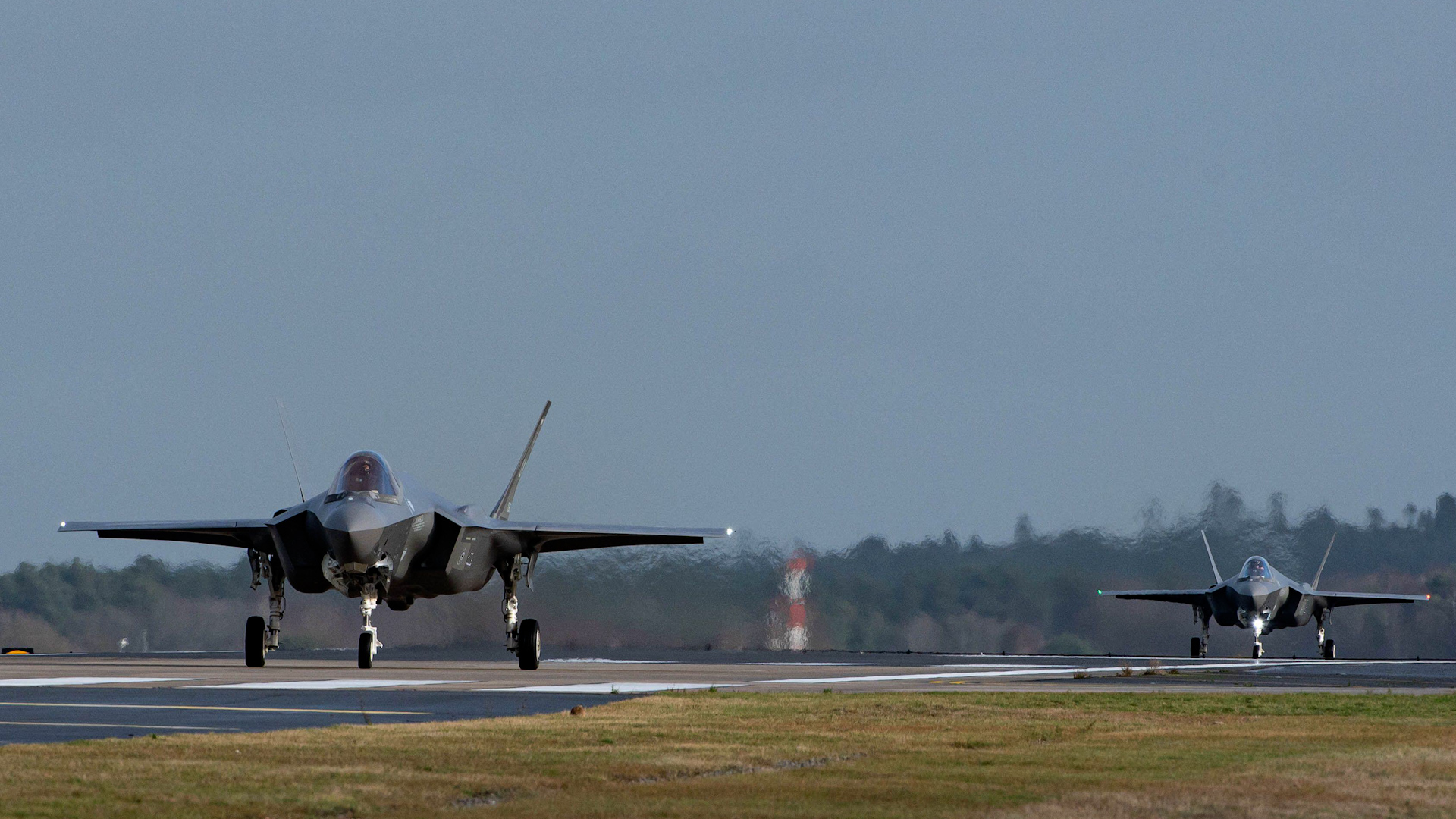
US could station nuclear weapons in UK for first time in 15 years amid Russian threat, says report

The US is planning to station nuclear weapons in the UK for the first time in 15 years amid a growing threat from Russia, according to a report.
RAF Lakenheath in Suffolk would be home to warheads with three times the power of the Hiroshima bomb, The Telegraph reported.
The US had previously stored nuclear missiles at the base, but removed them in 2008 when the Cold War threat from Moscow receded.
But Pentagon documents seen by the paper reveal procurement contracts for a new facility at the airbase in East Anglia.
A Ministry of Defence spokesperson said: "It remains a longstanding UK and Nato policy to neither confirm nor deny the presence of nuclear weapons at a given location."
The news comes after a top Nato military official warned that all-out war with Russia is a possibility within the next 20 years.
Admiral Rob Bauer said private citizens needed to ready themselves for a potential conflict that would change their lives.
The Dutch naval officer, who is chairman of Nato's Military Committee, warned that large groups of people would need to mobilise in the event of war, and authorities must ensure systems were in place to manage it.
He praised Sweden for its move in asking all residents to brace themselves for war as the nation prepares to join the Nato alliance.
General Sir Patrick Sanders, the outgoing Chief of the General Staff, had previously warned that the Army's 74,000-strong ranks would need to be bolstered by at least 45,000 reservists and citizens in order to be better readied for possible conflict.
Gen Sir Patrick said increasing Army numbers ahead of a potential conflict would need to be a "whole-of-nation undertaking".
Downing Street has ruled out any move towards conscription, saying Army service will remain voluntary.
Carlos Del Toro, the US Secretary of the Navy, urged the UK to "reassess" the size of its Armed Forces given the threats that exist today.
Downing Street defended the Government’s spending on defence, saying Britain had been Washington's "partner of choice" in its strikes against Houthi rebels in the Red Sea because of its military strength.






